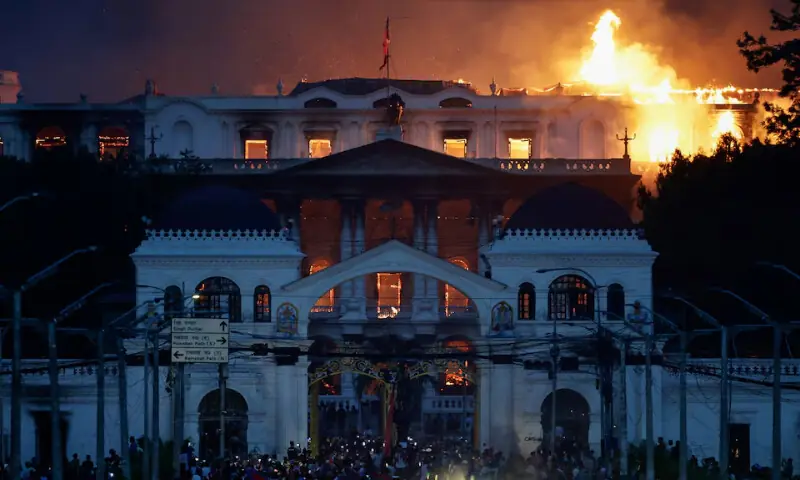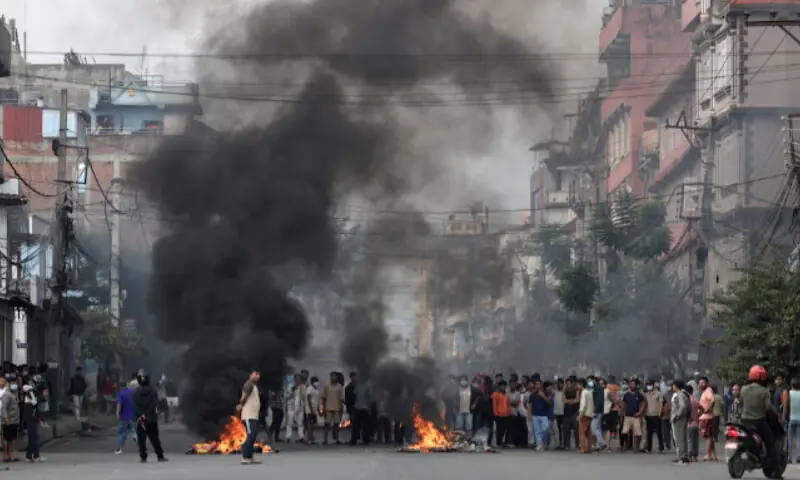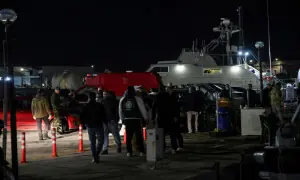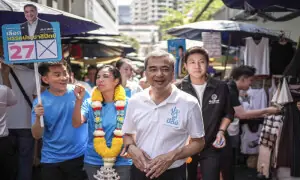Nepal PM Oli quits as anti-corruption protests spiral
Nepal Prime Minister K.P. Sharma Oli resigned on Tuesday as anti-corruption demonstrators defied an indefinite curfew and clashed with police, a day after 19 people died in violent protests triggered by a social media ban.
Oli’s government lifted the ban after protests intensified on Monday, with police firing tear gas and rubber bullets at protesters trying to storm parliament. Nineteen people were killed and more than 100 were injured in the unrest.

But there was no let up in the protests on Tuesday, forcing Oli to quit and plunging Nepal into fresh political uncertainty.
The unrest is the worst in decades in the poor Himalayan country that is wedged between India and China and has struggled with political instability and economic uncertainty since protests led to the abolition of its monarchy in 2008.
“In view of the adverse situation in the country, I have resigned effective today to facilitate the solution to the problem and to help resolve it politically in accordance with the constitution,” Oli said in his resignation letter to President Ramchandra Paudel.

An aide to Paudel told Reuters the resignation had been accepted and the President had begun the “process and discussions for a new leader”.
Jubilant youths entered the parliament complex on hearing the news, waving their hands in the air and shouting slogans as smoke arose from sections of the building.
“We won,” one protester wrote in huge orange letters on the beige coloured wall of the parliament building, while another near him made a ‘V’ sign with his fingers, for victory.

Although the protesters were still on the streets of the city, there were no clashes or violence as security forces did not interfere or try to use force, witnesses said.
PM’S HOUSE RANSACKED
Oli, 73, was sworn in for his fourth term in July last year as the country’s 14th prime minister since 2008. Two of his cabinet colleagues resigned late on Monday, saying they did not want to continue on moral grounds.

Earlier on Tuesday, Oli had called a meeting of all political parties, saying violence was not in the interest of the nation and “we have to resort to peaceful dialogue to find solutions to any problem”.
Oli had also said he was saddened by the incidents of violence due to the “infiltration from different selfish centres”. He did not respond directly to the protesters’ complaints about corruption.
But anger against the government showed no signs of abating, as protesters gathered in front of parliament and other places in the capital Kathmandu, in defiance of an indefinite curfew.

The protesters set fire to tyres on some roads, threw stones at police personnel in riot gear, and chased them through narrow streets, while some looked on and shot videos of the clashes on their mobile phones as thick black smoke rose to the sky.
Witnesses also said that protesters were setting fire to the homes of some politicians in Kathmandu, and local media reported that some ministers were plucked to safety by military helicopters.
Reuters could not immediately verify the information.
An aide to Oli said the outgoing prime minister’s private residence had also been set on fire.
Television visuals showed protesters barging into the compound and ransacking the property - shattering windows, and breaking pots, chairs, and other furniture - before setting the structure on fire. Security forces, appearing to be outnumbered, watched from a few metres away.
Video footage circulating on social media showed former Prime Minister Sher Bahadur Deuba and his wife Arzu Rana, the foreign minister under Oli, being attacked by protesters.
Reuters could not verify the authenticity of the videos.
Witnesses said the Singha Durbar area, which houses the Prime Minister’s Office and other ministries as well as Parliament House, was set on fire. AIRPORT SHUT
For the latest news, follow us on Twitter @Aaj_Urdu. We are also on Facebook, Instagram and YouTube.

























Comments are closed on this story.